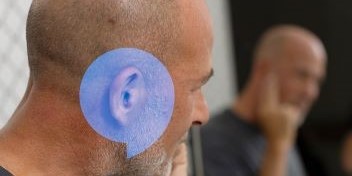Tinnitus affects about 1 in 8 UK adults, which is roughly 13% of the population.
There is currently no single cure for tinnitus . Experts, however, are quick to highlight that since tinnitus has many different forms, and many different causes, there may be multiple tinnitus cures or treatments in the future.
So while there might not be a specific cure, there are treatments for tinnitus and a lot of therapies to help manage it. These can help to reduce the impact tinnitus is having on your life.
There are many articles online claiming that certain foods can help relieve tinnitus, or can make it worse. According to the British Tinnitus Association (BTA), however, “there is no robust research that links food to tinnitus.” The problem with articles that claim certain foods will help your tinnitus is that since there doesn’t seem to be a single, particular food that will help everyone’s tinnitus, what may work for some won’t work for others.
According to the BTA, pinpointing whether a certain foodstuff is making your tinnitus better or worse could be a long and complicated process and would involve keeping a dietary diary, carefully monitoring what you eat and drink. To try and determine whether a particular food makes your tinnitus better or worse, try excluding it from your diet for seven days, and then reintroduce it, making a note of what effect, if any, reintroducing it has on your tinnitus.
One of the drawbacks to this method, however, is that the more closely you monitor your tinnitus, the more aware of it you are and the louder it may seem.
Eighty percent of people with tinnitus also have some degree of hearing loss, so if you’re worried you might be suffering from tinnitus and hearing loss, book your free hearing test today.





